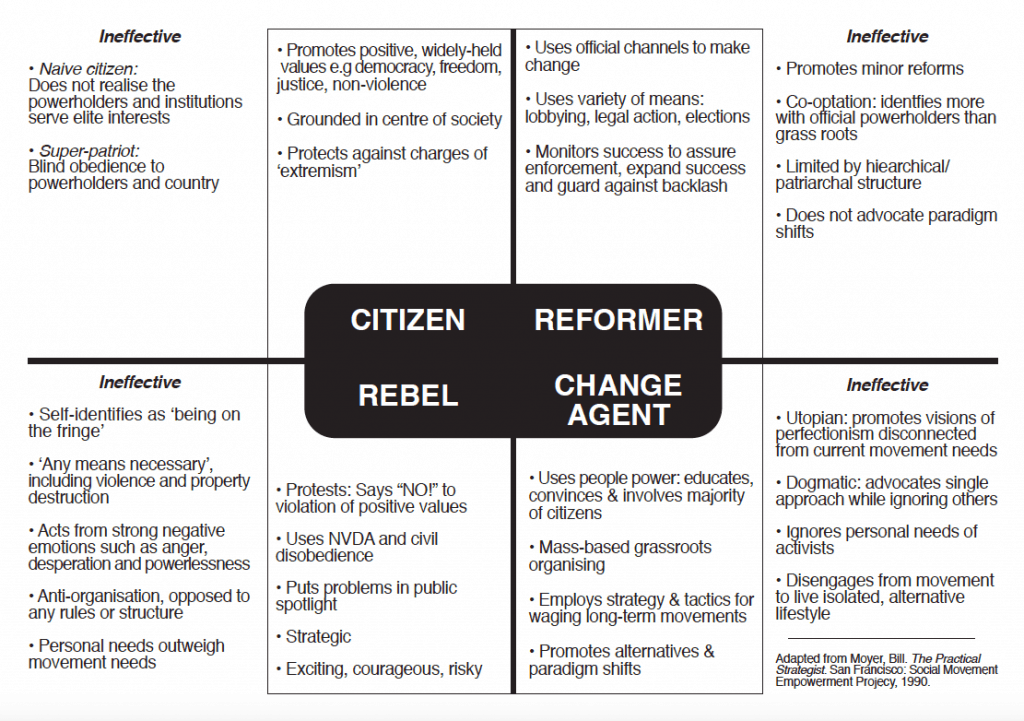第一题: 马哈迪安华联合声明再合作
1) 为什么又再次合作?目的是什么?
答: 他们两老再次攜手合作,我相信这绝对不是因为爱情。
先看联合声明的日期,5月9号,理应是希盟成功改朝换代,执政的两周年纪念日。
再看内容。重点大致上是,他们俩不承认现在的政府,说这些人违背了人民的委托、辜负了选民要求改变的声音。制度改革、法治和经济发展进程也随着政变中断了。
就白一点就是,对方不仁不义,而我们俩代表民主、改革、公正、自由,把执政权交还给我们希盟!
这样的剧本,希盟支持者肯定感动鼓掌欢呼,‘两老为了人民又和解了’,是这样吗?
安华和马哈迪联手对抗国盟政府是真的,但是看在共同利益上。
肯定安华和马哈迪各怀鬼胎。马哈迪号召土团党回归希盟,难道真的为了改革和民主?还不是想要继续做大哥,眷恋希盟各党对他俯首称臣让他继续呼风唤雨。安华好不容易终于被拥护成希盟的新共主,如果成功倒慕,这次要他让出相位?
2)联合声明透露了什么讯息?有办法解决希盟各党之间、甚至这两人之间的纠纷矛盾吗?
答:昨天马来邮报报导,安华承认他备受批评指责为何还要与马哈迪保持合作关系。他解释说那份联合声明他是以反对党领袖签署的,代表的是整个反对阵线包括马哈迪在内的少数土团党议员和民兴党议员,不止是现在的希盟3党而已。那么,既然如此,为何就只有他和马哈迪签署声明而已呢?为何不要像5月4日的5党党魁一起签署的联合声明要求延长国会?
再来,这封信也没有透露两人的未来动向。无论是他们的联手出击成功或失败,过后他们到底要做些什么?
假设真的成功了,谁会是首相?这次可以是希盟共主安华了吗?如果最后首相会是安华,马哈迪当初因不要传位给安华而拉倒希盟政府,不是看起来很傻很儿戏,绕了一个大圈回到原点?
他们俩互相厌恶撕破脸皮的戏码记忆还犹新,特别是在(3月1日慕尤丁宣誓就任第8位首相)马哈迪重返相位的计划确定被打败了后,他就毒舌起来。记得他说什么吗?他怪安华gila-gila nak
jadi PM, (发狂就是为了当首相),还说安华不行因为没多少人支持他。两周后他又在媒体怪罪安华一直策划要他早日下台。安华过后接受采访时也说他不再相信马哈迪。上个月他回敬老马问说到底是谁疯狂恋权要在90多岁继续当首相。
你们当中会有人真的相信现在他们和好了?哇塞,果然童话故事里幸福和快乐结局最叫座。
喂,他们俩已不是小孩子,玩‘friend你不friend你’的游戏了。你们要会看戏啦——戏的意思就是演给你看的,当然不是真的啦!
3)他们会成功吗?能合作多久?短期未来面对的矛盾和挑战是什么?
答:他们能合作多久?记得英国19世纪首相帕麦斯顿的这句话:“没有永远的朋友,也没有永远的敌人,只有永远的利益”。
所以很现实的,当对方不再有什么‘利用价值’帮助自己得到想要的‘东西’如权力,那么他们就分道扬镳!预料一旦他们不能在5月和7月的国会里成功倒慕拔丁,大势已去了后就各走各路。
未来还能不能合作,还就要再看马哈迪派系的土团党领袖的能耐和造化,能不能撑过今年党选,再看未来他们的残余势力和‘选票’号召力。事实上,过了喜来登政变后,马哈迪的M字招牌价值已猛挫。
但如果真能意外地成功以不信任动议扳倒慕尤丁国盟政府,那么谁来当新的首相肯定是首先最棘手的问题和矛盾。本人实在不太看好这个可能性。
第二题: 对首相投不信任动议的角力。
1)不信任动议有办法在下周一登上殿堂吗?马哈迪的动议被接纳了,有办法被安排宣读?
答:根据前天的议长通告声明,下周的国会就只开会一天,议程是最高元首开幕发表施政御词而已,没有其他环节了。早前的通告确实表示慕尤丁政府将提呈和辩论4个动议和两个法案,现在没有了,大概下午之前就休会散会直到7月再见。所以,不信任动议预料不能见光。
首相是国会领袖和议会主席,以新冠肺炎疫情为理由,他决定了开会的天数和主导议会议程。
这样一来,既使是一天的国会,国盟政府已可符合宪法要求——(距上次的开会日期)国会至少要在六个月内召开一次。
马哈迪现在是反对党议员,他提呈的动议属于私人议员动议,不算是政府事务。首相署部长达基尤丁说得没错,既使是下午环节有开放,既使议长依然亲希盟,但他必须优先安排处理政府事务。因此对于私人议员动议,一般上除非政府让路不然很难见光。
所以议长接纳动议是一回事,安排议案呈堂宣读的次序他还是得专业地遵循程序去执行。
2)不信任动议应该在疫情仍蔓延的此时此刻提呈吗?
答:我的看法是,这项动议应趁早在国会提呈和表决,这有助于首相慕尤丁确立自己执政的合法正当性,检验他拥有大多数信任支持组成政府,顺便止住那些频频说他的国盟政府‘走后门’的嘴巴。在任何时刻这个动作皆可稳住政局,提高人民对现任政府的信心,更何况现在国家面对新冠肺炎疫情,人民需要有正当性的政权给予指挥协调,心服口服才会遵守新政策指令。
所以,慕尤丁应该放行让这个不信任动议提呈上来,最好就解决掉它。当然,条件是他确实真的能掌握多数议员的支持。现在他好像心虚,因为各党利益分配不均的问题而暗流汹涌,这个显然是他的担忧。
3)假设成功提呈该动议,慕尤丁有足够议席数目、能撑得过吗?盟党们是否已表态?
答:纸面上,慕尤丁的国盟政府理应有114席对垒安华领导的在野阵线的108席,那么说他就掌握简单多数可否决不信任动议,确立了他政府的正当性。虽说如此,风险是只要他阵线里有至少3议员跑票,他就丧失了简单多数的优势。这个有可能吗?很难说。
上个月首相署部长达基尤丁就表示,所有政府后座议员将可获官联公司的董事一职。在很多人的眼里,这是用公职来诱惑后座议员的伎俩,保住他们对政府的支持,排排坐有果果吃。这个游戏的玩法早在国阵时代就有了,希盟也有类似的权宜安排既使不是所有后座议员获得如此的待遇。目前国盟政府已确定安顿了8个后座议员这些机构职位,还有另外盛传7个正安排当中。
如果后者面对不信任动议的挑战,3天前国阵通过主席扎希表态将无条件支持首相慕尤丁,这无疑增强了慕尤丁的信心,但这或许仍不足于保证他可轻骑过关。
4)若不小心输掉了不信任动议,意味着什么?慕尤丁有什么王牌仍握在手上保住他政权?
答:如果慕尤丁真的遇到跑票,不小心输掉了不信任动议,那么他和内阁全体成员就必须总辞。他可以向最高元首要求解散国会重新选举,但最高元首有权不答应,然后由最高元首来鉴定和挑选下一位最有可能获得国会大多数支持的领袖为首相并组新内阁。
所以,我相当肯定慕尤丁不敢太贸然行事,因为输掉了不信任动议就意味着他丢官了。他需要时间整顿公家资源分发出去给支持者。这就是所谓的‘政治绑桩’。这对国家人民不是什么好事,毕竟法定机构和官联公司高职应由最适合的相关专业人士来担任执行任务,由国会议员政治人物来担当除了要‘养’他们之外,没增加政府效率,说白了是浪费纳税人钱或公司资源。
第三题:CMCO再延长四星期的考量。
1)延长合理吗?政府考量的因素是什么,与开斋回乡浪潮有关吗?
答:首先,有条件行管令会继续下去并延长至6月9日。看回月历,就可发现这段期间涵盖了开斋节、东马的两大节日(达雅丰收节和沙巴丰收节)。这些节日一般会看到回乡的浪潮。
再看看近期的每日新增病例的数字。虽说已降至50以下,但在一些红色疫区还是常有新病例。通常这些红色疫区都在城市,相对于很多县市郊区特别是北马和东海岸州属很多已多日甚至是好几个星期没新增病例。
分析所谓的每日新增病例,除了国外引入和群聚追踪病例,目前政府顾虑的是还未被发现的社区感染病例,要根除不易、能压多久就多久。
有条件行管令主要是为了要控制跨州人流,并设定下防疫SOP给各行各业去遵守,以让人调适未来的解封状态。坦白说,现在的有条件行管令已让人相对宽松舒服了,很多人都可以透一透气不用一直待在家里,照理来说延长多几周应该改变不大。
2) 那些所谓放宽的开业和社交条件能够有效执法监督吗?
答:最新的宣布针对几个方面:
1)跨州分隔两地的伴侣亲人,2)困在大学院校宿舍的学生,3)要在宗教场所礼拜的人,4)大节日时期州内拜访的人数限制。
对于跨州的人流,除了人民需要通过Gerak Malaysia app或在警察局申请,警察大可在主要的州边境设障碍监督人民。至于宗教场所的SOP,管理员与信徒之间的自律管理很重要。正如近来越来越多的餐厅开业允许人们堂食,大家要小心遵守SOP。
现在最多人关心的是,到底有没有可能执法监督大节日期间拜访人数的顶限20人啊?
警察有可能去社区巡逻计算屋内的访客人数吗?毕竟当局不可能要求这些居家像店面那样登记访客或要测量体温才可允许访客进入。屋子里面的社交距离或许也只能要求主人家和访客自律,不能硬性规定。
大家都知道新年期间燃放烟火爆竹是非法、不被允许的,很多人还不是照放?如果政府连那个明目张胆的非法活动都无法有效执法,我相信20人访客的限制差不多如同虚设。所以卫生总监诺希山在日前说,人数不是重点,而是大家拜访的时候有没有注重个人卫生和做足防疫措施?
3)韩国近来面对新一波的疫情袭击,我国在放宽各行业后会步上后尘吗?
答:早期面对瘟疫到后来有效地控制疫情的韩国,他们没落实类似我国的行管令或封城令。这整体表现要归功韩国民族自律的精神。但无论怎样自律也好,一旦有一人或几人不小心成为那些‘坏苹果’,就点燃星星之火可以燎原。最近韩国的新增病例其中是由于有一患者一晚流连好几个酒吧,就传染了好几十位。在疫情最受控制的期间,韩国每日新增病例只不过是单位数而已,现在又回到双位数。
所以,你问我到底我国会不会面对新一波疫情袭击?我相信这个可能性存在。
在疫苗还未被研发前,绝大部分的国人面对病毒皆有被感染的风险。一日全球大流行疫情没停止散播病毒,我国随时要面对新一波疫情考验。专家预料这个情况会延续两年。
看来我们要习惯不同程度的行管令,工作单位如公司和政府亦需如此。只要人民配合卫生部,遵守防疫措施和SOP,大家应该可以共同把疫情控制下来,把伤害和损失减至最低。


